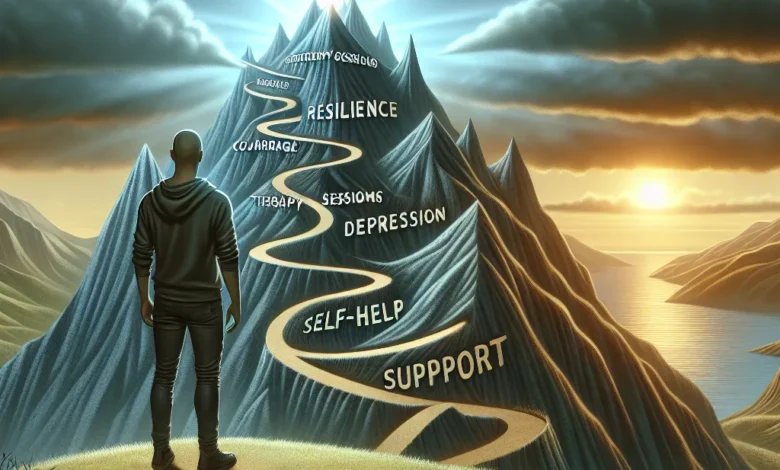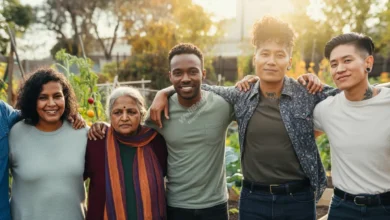Navigating the Landscape of Community Support for Anxiety and Depression

Anxiety and depression are prevalent mental health conditions that can significantly impact an individual’s quality of life. Seeking community support is crucial in managing these challenges effectively. This article aims to explore various avenues of community support available for individuals grappling with anxiety and depression, providing insights into the diverse resources and strategies that can offer assistance and solace.
Support Groups: Connecting with Understanding Peers
Support groups provide a safe and empathetic space for individuals experiencing anxiety and depression to share their struggles and receive encouragement from others who understand their challenges. These groups often consist of individuals with similar experiences, fostering a sense of belonging and camaraderie. By participating in support groups, individuals can gain valuable insights, coping mechanisms, and emotional support to navigate their mental health journey effectively.
Professional Counseling: Guidance from Trained Experts
Professional counseling offers individuals personalized support from mental health professionals, such as therapists, psychologists, or counselors. These professionals are equipped with the expertise to help individuals explore their thoughts and emotions, develop coping strategies, and work towards healing and recovery. Counseling sessions provide a confidential and non-judgmental space for individuals to address their anxiety and depression, fostering self-awareness and emotional well-being.
Online Resources: Accessing Support Virtually
In today’s digital age, online resources play a crucial role in providing accessible support for individuals dealing with anxiety and depression. Websites, forums, and mobile applications dedicated to mental health offer a wealth of information, tools, and interactive platforms for individuals to educate themselves, connect with others, and access self-help resources conveniently. Online therapy services, such as teletherapy and virtual support groups, have also become increasingly popular, offering flexibility and convenience for seeking support from the comfort of one’s own space.
Community Workshops and Events: Learning and Growing Together
Community workshops and events focused on mental health awareness and well-being provide opportunities for individuals to deepen their understanding of anxiety and depression, learn coping skills, and connect with like-minded individuals. These events often feature expert speakers, interactive sessions, and group activities aimed at promoting mental health education and destigmatizing discussions around anxiety and depression. By participating in such workshops, individuals can gain valuable knowledge, tools, and support to navigate their mental health challenges effectively.
Table: Types of Community Support for Anxiety and Depression
| Type of Support | Description |
|---|---|
| Support Groups | Peer-led gatherings where individuals share experiences and provide mutual support |
| Professional Counseling | One-on-one sessions with trained mental health professionals to address emotional challenges and develop coping strategies |
| Online Resources | Websites, forums, and apps offering information, tools, and virtual support for mental health concerns |
| Community Workshops | Events and sessions focusing on mental health education, coping skills, and fostering a supportive community |
Self-Care Practices: Nurturing Your Mental Health
Incorporating self-care practices into daily routines is essential for managing anxiety and depression. Engaging in activities that promote relaxation, mindfulness, physical well-being, and creative expression can help individuals alleviate stress, improve mood, and enhance overall mental health. Prioritizing self-care allows individuals to recharge, cultivate resilience, and build a foundation for emotional well-being amidst the challenges of anxiety and depression.
FAQ
What are support groups, and how can they benefit individuals with anxiety and depression?
Support groups are gatherings of individuals who share similar experiences and challenges, providing a platform for mutual support, understanding, and shared coping strategies. These groups offer a sense of belonging, empathy, and validation, which can be particularly beneficial for individuals grappling with anxiety and depression.
How can online resources help individuals with anxiety and depression?
Online resources, such as websites, forums, and mobile applications dedicated to mental health, offer information, tools, and virtual support for individuals seeking guidance and resources to manage their anxiety and depression effectively. These platforms provide accessibility, convenience, and anonymity for individuals to explore and access support from anywhere at any time.
What can individuals expect from professional counseling for anxiety and depression?
Professional counseling offers individuals personalized guidance and support from trained mental health professionals to address their emotional challenges, develop coping strategies, and work towards healing and recovery. Counseling sessions provide a safe and confidential space for individuals to explore their thoughts and emotions, fostering self-awareness and emotional well-being.
Key Takeaways
Navigating the landscape of community support for anxiety and depression involves exploring diverse resources such as support groups, professional counseling, online platforms, and community events. Engaging in self-care practices and seeking help from various avenues can empower individuals to manage their mental health challenges effectively. By connecting with understanding peers, accessing expert guidance, utilizing online resources, and prioritizing self-care, individuals can build resilience, foster well-being, and navigate their mental health journey with support and empowerment.



